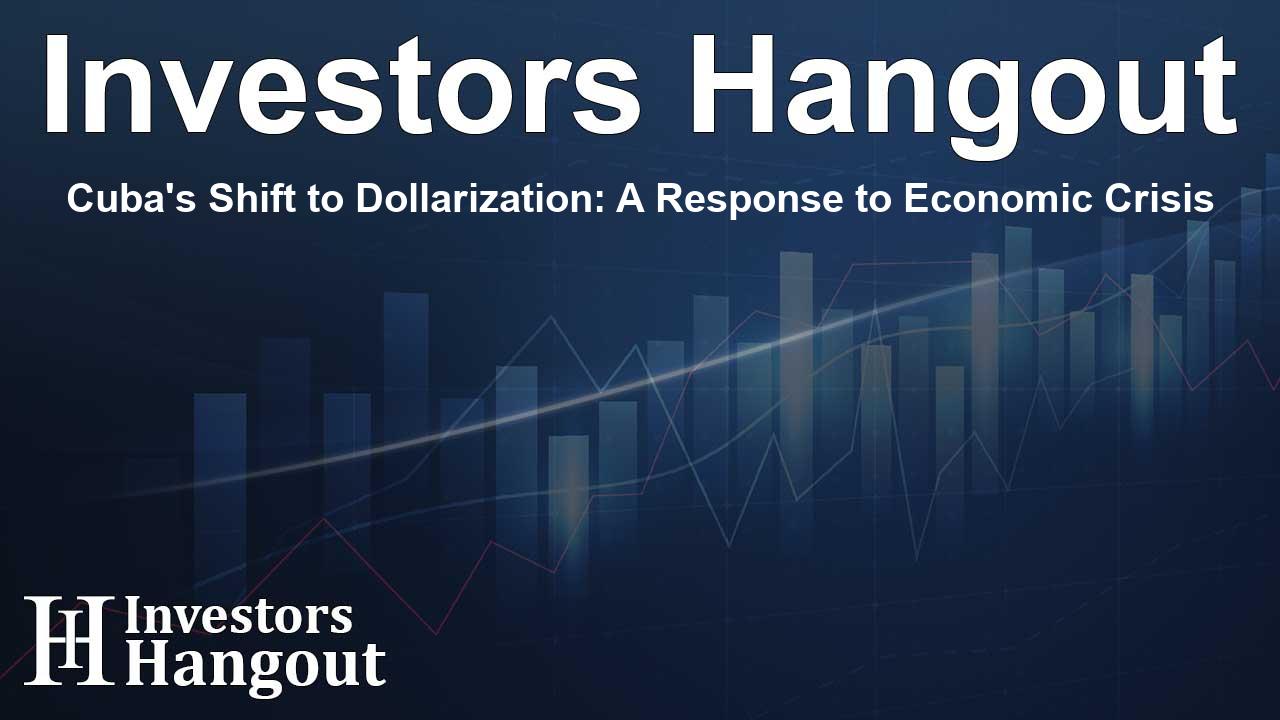Cuba's Shift to Dollarization: A Response to Economic Crisis

Challenges of Dollarization in Cuba's Economy
Cuba is currently facing a tough economic situation where access to hard U.S. dollars is more important than ever. The island recently made headlines by opening its first grocery store in nearly twenty years that accepts U.S. currency. This move is part of a broader trend towards dollarization within the Communist-run nation, reflecting a significant shift in the availability of currency options.
New Opportunities for Limited Access
This new grocery store has received a warm reception from a select group of Cubans who are fortunate enough to have access to U.S. dollars. Just four years ago, local banks stopped accepting cash deposits in American currency, making this development particularly noteworthy. One resident, Yuliani González, expressed cautious optimism about the grocery store’s offerings but acknowledged the reality that many people are unable to afford shopping there.
Dollar Stores and Economic Relief
The market opens a new avenue for those able to pay in dollars, enabling them to easily purchase items like gasoline, rent cars, and secure hotel accommodations without the long wait times that the rest of the population often faces. This is a vital change considering the economic struggles many Cubans have encountered in recent years, worsened by trade restrictions.
The Impact of U.S. Relations
Recent developments in U.S.-Cuba relations have intensified the dollar crunch on the island. The U.S. administration’s reversal of policies meant to facilitate Cuba's access to dollars has made the situation even more dire. Experts have voiced concerns that this will exacerbate the existing economic challenges, pushing many into deeper financial difficulties.
Hopes for Improved Social Programs
Cuban officials are hopeful that these dollar stores will attract remittances from abroad, which could be channeled into critical social services. The government envisions using the foreign currency to support essential services such as healthcare and subsidies for food, transportation, and other necessary resources. However, the realities on the ground highlight the struggle to convert these intentions into tangible benefits.
Environmental Challenges of Currency Policy Shifts
Since 2004, Cuban shops have transitioned to accepting the Cuban Convertible Peso (CUC) but recently reverted to a digital currency closely pegged to the dollar called MLC. This shift has created confusion and dissatisfaction among consumers seeking reliable currency for everyday transactions. Economists, like Omar Everleny, believe that the government's failure to stabilize its currency is creating further economic instability on the island.
Income Inequality Growing Wider
The rise in dollar stores unfortunately underscores a growing gap between those who have access to foreign currency and those who do not. As prices in dollar stores remain out of reach for many, the disparity in living standards continues to widen, complicating an already challenging socio-economic landscape.
Seeking Solutions for Broader Access
For families like that of Odisbel Saavedra Hernández, receiving U.S. dollars from relatives overseas has become a lifeline to maintain a reasonable quality of life. Saavedra expressed a desire for more dollar stores to open across the nation, emphasizing the need for equal access to such markets for all Cubans. This sentiment highlights the urgency for policies that will protect and uplift the entire population, rather than favoring those already in advantageous positions.
Frequently Asked Questions
What is the significance of Cuba opening grocery stores that accept U.S. dollars?
This is a critical development, reflecting Cuba's ongoing economic challenges and a pivot towards dollarization as an attempt to stabilize the economy.
How has dollarization impacted Cubans without access to U.S. dollars?
Dollarization has exacerbated income inequality, making it increasingly difficult for those without access to foreign currency to afford basic necessities.
What does the future hold for Cuba's economic policy?
With current economic strains, Cuban officials are looking to increase dollarization while simultaneously seeking ways to support social programs funded by foreign currency remittances.
Are there any risks associated with Cuba's reliance on U.S. dollars?
Yes, a heavy reliance on U.S. dollars could lead to further economic instability if relations with the U.S. deteriorate, leaving the country vulnerable to external shocks.
How can Cubans access U.S. dollars if they do not have family abroad?
Many Cubans struggle with access; options may include government programs or exploring informal networks, but it remains a significant challenge for those without financial support from abroad.
About The Author
Contact Lucas Young privately here. Or send an email with ATTN: Lucas Young as the subject to contact@investorshangout.com.
About Investors Hangout
Investors Hangout is a leading online stock forum for financial discussion and learning, offering a wide range of free tools and resources. It draws in traders of all levels, who exchange market knowledge, investigate trading tactics, and keep an eye on industry developments in real time. Featuring financial articles, stock message boards, quotes, charts, company profiles, and live news updates. Through cooperative learning and a wealth of informational resources, it helps users from novices creating their first portfolios to experts honing their techniques. Join Investors Hangout today: https://investorshangout.com/
The content of this article is based on factual, publicly available information and does not represent legal, financial, or investment advice. Investors Hangout does not offer financial advice, and the author is not a licensed financial advisor. Consult a qualified advisor before making any financial or investment decisions based on this article. This article should not be considered advice to purchase, sell, or hold any securities or other investments. If any of the material provided here is inaccurate, please contact us for corrections.
